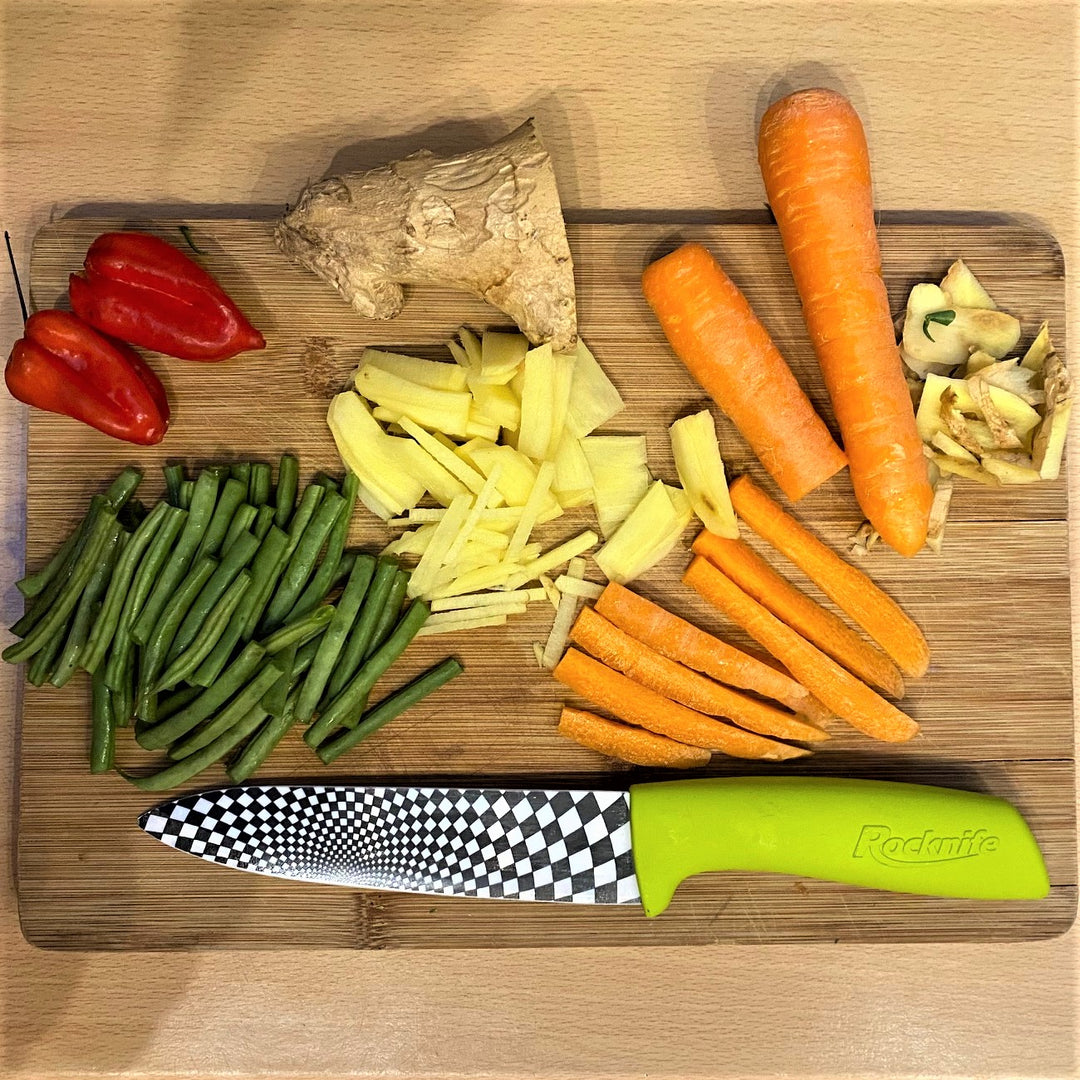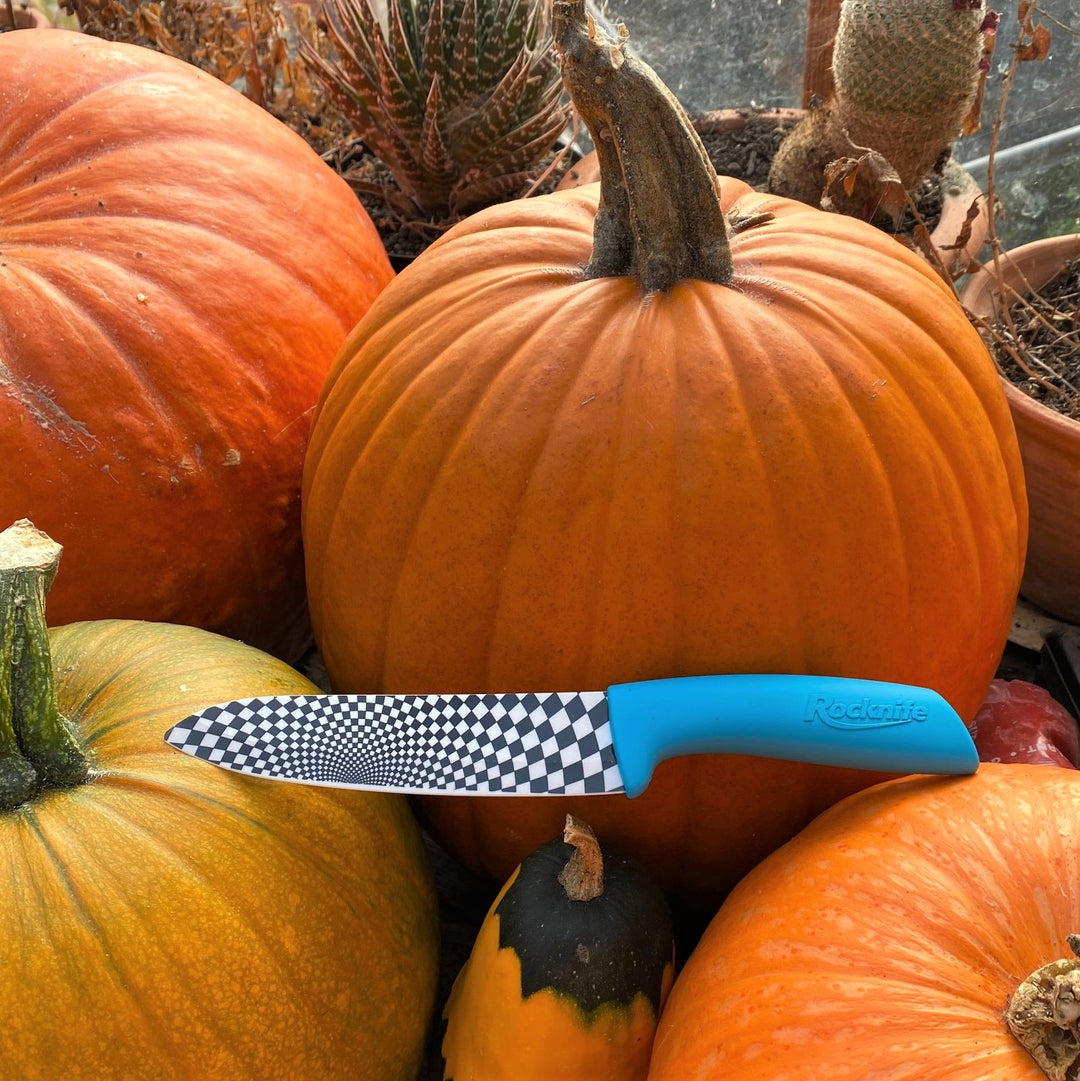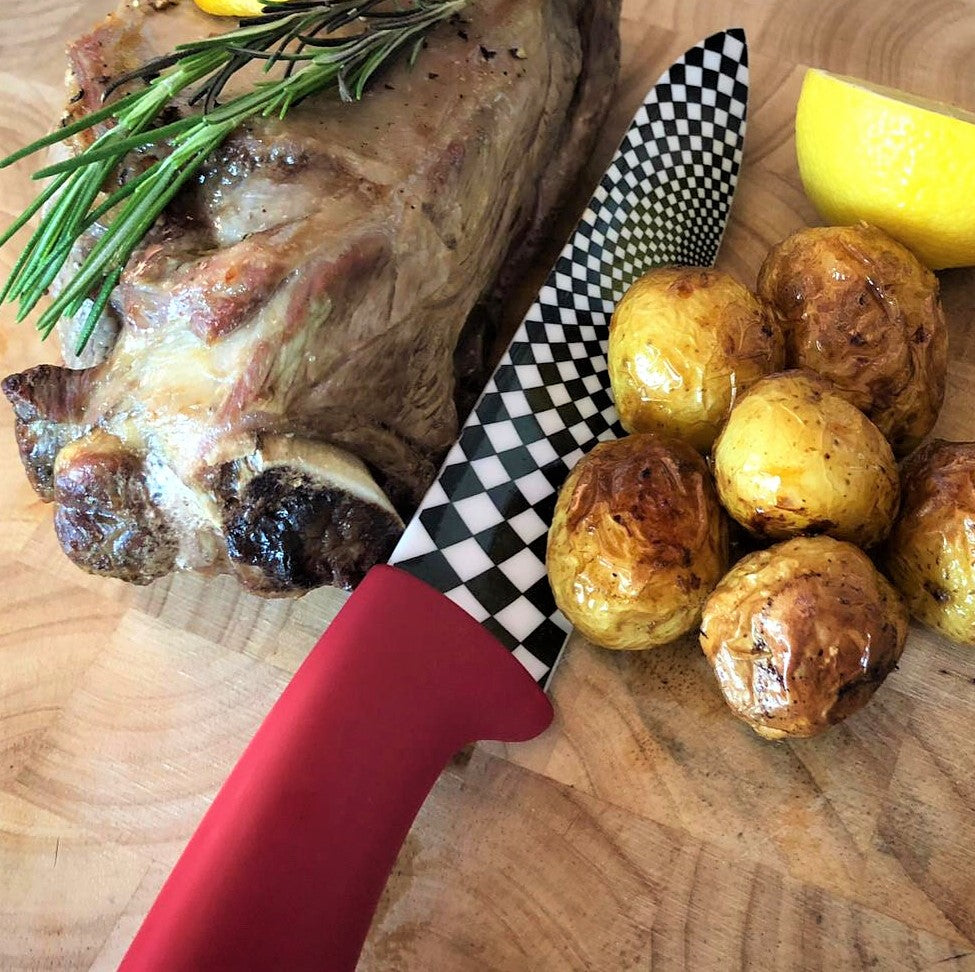
The sharpness and durability of ceramic knives have made them the rage in the cooking world. They maintain their sharp edge, resist rust and odor, and slice with precision. Ceramic knife blades are made from a material second only in hardness to diamonds. They don’t shatter when dropped and keep their sharp edge much longer than any grade of stainless steel knife. Though ceramic knives are durable, they do require proper care for optimal function. Through proper use, cleaning, sharpening and storage, your ceramic knives should stay razor-sharp for a lifetime.
Proper Use Though ceramic knives are extremely durable, they are not all-purpose. Their hardness makes them much more rigid than their steel knife counterparts. These knives are designed for slicing and dicing softer foods such as fruits and vegetables and boneless meat. Chopping or using them to cut hard substances such as bone or frozen food can cause chips in the blade, affecting sharpness. If you do chop with your ceramic knife, it’s best to keep your knife point on the cutting surface to prevent breakage. You should also avoid using your knife as a tool for prying. When slicing with a ceramic knife, use a wood or plastic cutting board. Harder surfaces such as glass, marble or stone will increase the chance of damage and may effect blade sharpness.
Cleaning Ceramic knives are extremely sanitary and very easy to clean. Due to their non-porous nature, germs, and bacteria cannot permeate the blade. Hand washing is recommended for ceramic knives since they are not dishwasher safe. Blade chippage could occur if knocked or hit by other dishes. Dishwashers can also deteriorate the wooden handles of some knife models. And because of the sharpness of ceramic knife blades, injuries could easily occur when placing or removing dishes from the dishwasher. Kyocera, a major manufacturer of ceramic knives, recommends simply hand washing your knife with liquid dish soap.
Sharpening Because of the hardness of the blades, ceramic knives rarely need sharpening. Unlike stainless steel knives, which need sharpening approximately one a year, ceramic knives can go five to seven years between sharpenings. Because the ceramic knife is so hard, it requires a diamond sharpening stone. To protect the quality of your knife, it is best to leave this task to professional knife sharpeners. Some ceramic knife manufactures will actually sharpen your knives for you, so be sure to keep all your knife’s warranty information after purchase.
Storage You can safely store your ceramic knife in a knife storage block, or protected inside a sheath in a drawer. Organize your knives to protect the blades from chipping and yourself from accidental injury. For extra protection during storage, folding ceramic knives are available.











Ceramic knives are nice but stain yellow over the time . Their surface is not as smooth as it’s initial shiny white suggests
Leave a comment